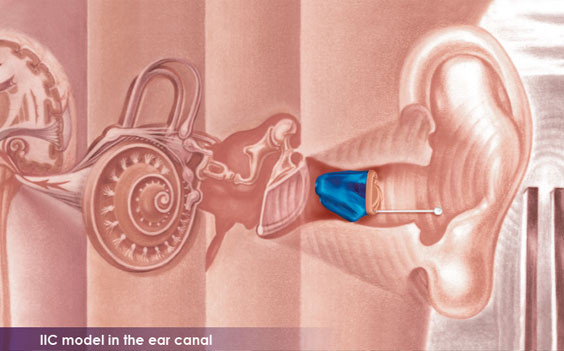
Hearing and technology : practical and small hearing aids
Choosing the right model of hearing aid is a crucial step in the purchasing process. These days, it’s no longer necessary to wear large hearing aids unless you have severe to profound hearing loss, or dexterity problems or vision loss. One of the most discrete models currently available on the market is the IIC (for “invisible in the canal”). This small model is inserted deep into the ear canal and once it’s in position, it’s practically invisible to observers.
How does this small hearing aid model works?
These little hearing aids have the advantage of being easy to use because they are button-free. Simply activate and insert into the ear. They are comfortable and practical to use on the telephone. They are also less affected by wind than other hearing-aid models. And given that no part of the device is placed over the ear, they are very practical for people who wear eyeglasses. The visible part of the hearing aid is a darker colour, to conceal it in the shadow of the ear canal.
This model of hearing aid uses the open entrance of the ear canal and the natural folds of the outer ear flap to transmit sound to the microphone, strengthening high-pitched sounds and offering natural directionality. However, the hearing aid must be positioned as far as possible inside the ear to benefit from this advantage.
To ensure that you gain all the amplification you need, it is recommended that you only buy an IIC model if your hearing loss is light to moderate.
The size of the ear canal is also important to consider with this type of hearing aid. If the canal is too narrow or too short, it may not be able to accommodate the hearing aid. The amount of earwax produced by the ear must also be taken into consideration. Your audioprosthetist can assess whether you could benefit from an IIC hearing aid.
In conclusion, this type of hearing aid perfectly meets the needs of active clients who want a discrete solution for light to moderate hearing loss. It is ideal for first-time wearers of hearing aids.
* An evaluation by an audioprosthetist is required to determine if the hearing aid answers the needs of the patient.
By Stéphane Cérat, audioprosthetist, Groupe Forget

